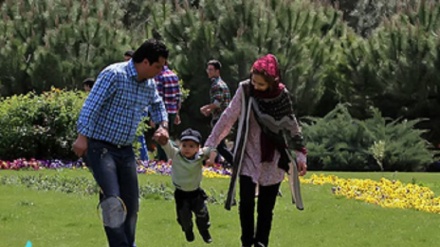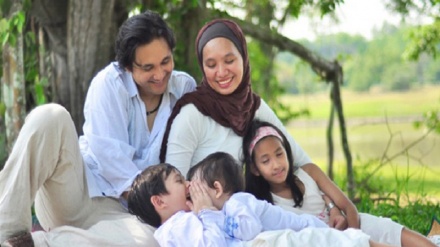Iranian Family (47)
In the recent past, there were many extended families, comprising of grandparents, parents, and siblings; with the family members expressing further happiness and content.
Within the family, we learned to remain patient in the face of adversities and problems, and unfortunate incidents, and to be forgiving and kind toward other family members. We learned these ethical virtues from our parents and grandparents. Their presence within the family was a divine blessing, while everyone in the family benefitted from, and enjoyed their kind and amicable behavior.
Nowadays, the social, economic, technological, and scientific advancements and developments, have been coupled with a growth in life expectancy. These developments have also replaced the age-old values and traditions with emerging values. These developments have increased the qualitative changes in the relations among family members, generating concerns over the fading status of the elderly in families and terms of maintenance of the elderly and fulfillment of their needs within the framework of families.
Advanced age usually catches us off guard. Every single person is unique. However, we are oftentimes unprepared for our waning years. The fact of the matter is that advanced age is one of the phases of growth and development of mankind, surprising those who consider advanced age as a mark of termination of one's life.
The Islamic community benefits from the rich Islamic culture, which highly values and honors the elderly. The Prophet of Islam, Mohammad (Blessings of God upon him and his progeny) pointed out that honoring and respecting the elderly is tantamount to bowing to God Almighty.
The elderly figures in an extended family are usually grandparents. The Islamic hadiths have put emphasis on caring for, assisting and safeguarding grandparents materially and morally, both.
Maintaining courtesy, and honoring the elderly is the least we can do to make up for the lifelong selfless, and sincere efforts of the elderly for our upbringing. We should also seek the advice of the elderly in everyday matters, and should honor their views and arbitrations in disputes. At times, the wise and prudent remarks of an elderly can foil a sedition, or turn a discord into consensus, sympathy, and reconciliation.
According to a body of studies, presence of elderly in families boosts the level of reassurance, safety, and health in the family. A project, which aimed to assess the level of happiness of the elderly, carried out a study on 200 elderly individuals, of whom a hundred lived in nursing homes, with the remaining residing with their families. The findings revealed that the mental health and happiness of the elderly who resided with their family were meaningfully higher than the level of mental health and cheerfulness of the elderly, who resided in nursing homes.
In accordance to Islamic culture, whenever the mental and physical health of the elderly deteriorates; family is duty-bound to take care of the ailing elderly. However, nowadays, some problems and challenges could arise for the ailing elderly and other family members. The structural change of family in the contemporary era has prompted a surge in vulnerability of the elderly. The elderly has always been honored and respected, however, this status of the elderly is currently collapsing under the impact of the present day inclinations; with the distinguished status of the elderly being called into question. Nowadays, extended families are turning smaller. In the contemporary era, the families are duty-bound to once again shape a sense of responsibility for meeting the needs of the elderly figures in the family, in addition to taking care of the everyday tasks.
We can decide to take care of our elderly parents and to further interact with the elderly in a kind and amicable manner.
MR/ME


